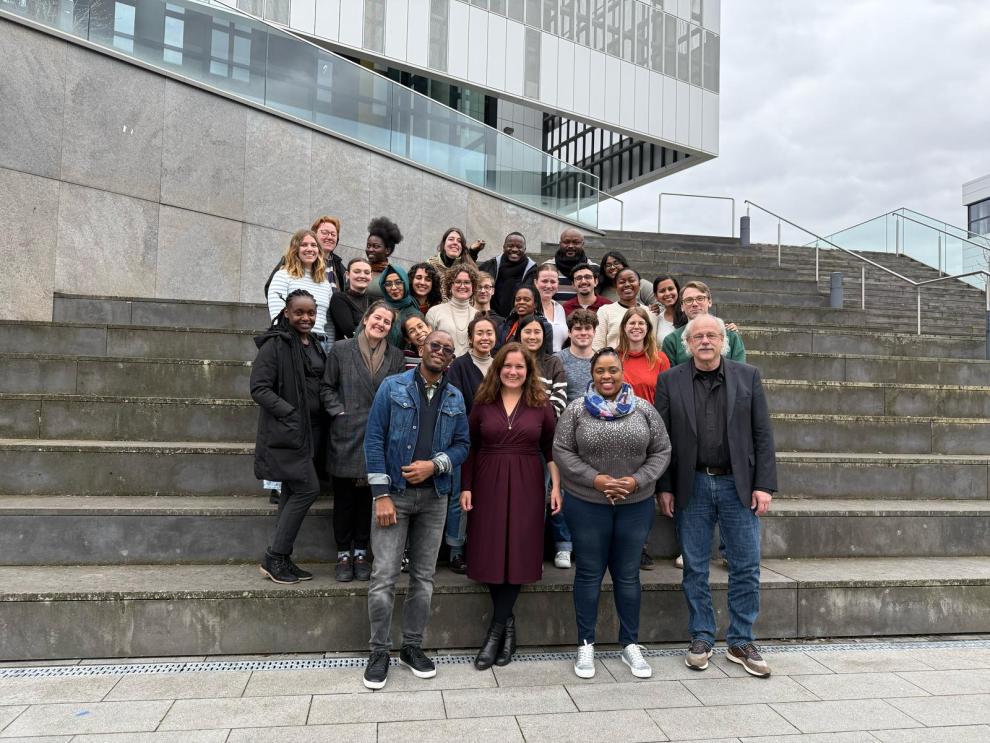Students from 7 different universities participate in the third edition of a unique Winter School in Kleve
From March 10th to 14th, 2025, the Winter School on Inclusive Water Management in Southern Africa for Improving Gender Equality and Reducing Poverty & Vulnerability took place at Rhine-Waal University for the third time. Developed by Professors Jan van der Molen and Eva Maria Hinterhuber in the Sustainable Development Management Master’s program, it provides students with a unique, simulation-based learning experience on gender, poverty, and vulnerability in water management.
Thanks to a partnership between HSRW and the Dutch Water Authorities’ Blue Deal program with Eswatini, students engaged with professionals from the Blue Deal program and from key institutions in Eswatini that had come to Kleve. Over five intensive days, they analyzed local challenges, applied theoretical knowledge to real-world scenarios, and developed practical solutions under expert guidance.
The diverse group of 26 students from 13 countries brought valuable interdisciplinary perspectives, enriching discussions and outcomes. The students came from 7 different universities: for the major part from Rhine Waal University, but also from TU Dortmund, HTW Berlin, University of Bonn, University of Passau, Freiburg University, and the University of Hohenheim in Stuttgart.
The winter school simulates the situation in which the participating students belong to a team of experts in the fields of gender and poverty that has accepted the invitation to come to Eswatini for a one-week visit in order to advice on how to make water management in Eswatini more inclusive in relation to gender and poverty & vulnerability. During the visit there are two key players in the field of water management in Eswatini that are available to discuss the development of water management, and gender and poverty & vulnerability issues in Eswatini with the team of experts. In addition, the key players are also stand-by for field trips to offer the experts the opportunity to get their own impressions and gain their own experiences.
In the course of the visit the experts present their ideas and advice, and the two key players respond to the quality and applicability of these ideas and advice. Just for the sake of clarity: the professionals from outside the university are not just there for the benefit of the participating students, the intention is that the ideas and advice that the students come up with will also help them on their way towards more inclusive water management. The two guests from Eswatini indicated that several of the ideas put forward by the students will indeed be implemented in the coming year(s).
The Winter School once again proved to be an enriching and impactful experience, highly valued by both students and professionals.

